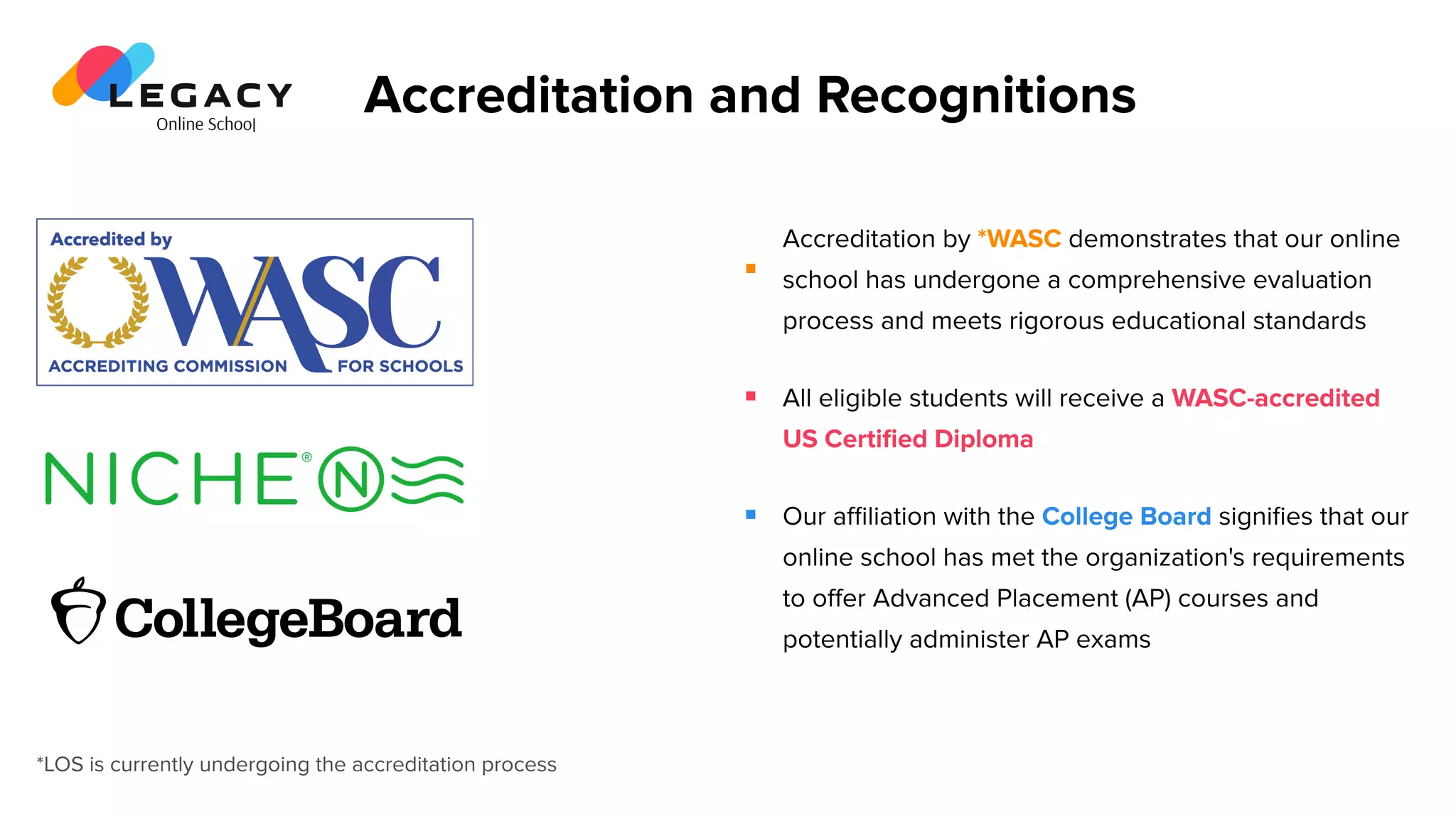Contents
- 1 Accredited High School Homeschool Programs
- 2 Online Vs. Traditional Homeschooling Options
- 3 Online Homeschooling
- 4 Traditional Homeschooling
- 5 Enrolment Processes for Homeschool Programs
- 6 High School Homeschooling: Benefits and Challenges
- 7 Benefits of High School Homeschooling
- 8 Challenges of High School Homeschooling
- 9 Social Opportunities for Homeschooled High School Students
- 10 Making the Choice: Should Your Child Homeschool for High School?
What is an accredited homeschool program? Accreditation means that a program or school went through an inspection by educational governing bodies and received an approval based on high education standards. These programs undergo harsh evaluation to ensure they meet standards of the education sphere and will be recognized by other educational bodies and future employees.
Accredited High School Homeschool Programs
It’s important to ensure the education offered meets or surpasses state requirements. Parents and students must seek out programs that have accreditation and provide a broad curriculum covering various subjects. How should an accreditation page look? Check it out on Legacy Online School’s website by clicking this link to see for yourself.
Being accredited by known bodies like Cognia and AdvancED indicates that the program went through evaluation and met all necessary criteria for delivering a top tier education. Accreditation is crucial for ensuring that the credits and diploma obtained through the program can be transferred to other institutions like colleges and universities.
It’s also important to consider the specific subjects offered in the program. A comprehensive curriculum should cover core subjects such as mathematics, science, language arts, history, and social studies. Families must look for programs offering a diverse set of electives such as foreign languages, fine arts, technology, and physical education. This diversity allows students to explore their interests and develop a well-rounded education.
Access to websites that compare and review accredited programs will be beneficial for families and students when they search for a program. These digital platforms provide valuable insights on user experiences. Insights help families make informed decisions about the best-fit program for their child’s educational goals.

Online Vs. Traditional Homeschooling Options
Online and traditional homeschooling options have advantages and disadvantages. Below is a list to give a simple and easy to understand explanation of each educational plan.
Online Homeschooling
Online homeschooling offers flexibility that traditional schooling does not provide. Online education gives students access to a variety of courses which also includes advance placement (AP) courses that are not always available in traditional schools. The flexibility of online education additionally assists students who require a flexible schedule to fit their personal commitments, part-time jobs, or medical needs.
Another advantage of online homeschooling is the accessibility of resources and diverse teaching styles. Online platforms often integrate interactive and multimedia resources, which makes learning more engaging for students. The ability to connect with educators and peers virtually provides a sense of community despite being physically distanced. This helps students who need additional support.
Online schooling allows students to work at their own pace. This flexibility caters to each person’s learning styles and preferences, which helps students explore subjects they like while managing their time.
Traditional Homeschooling
Traditional homeschooling requires participation in designing the curriculum and providing instruction. This method requires dedication from parents or caregivers. It provides an education that suits the students’ unique way of learning. The individualized approach of homeschooling permits adjustment of teaching techniques according to specific requirements.
Parents have greater control over the educational materials used and can adjust lessons to accommodate their child’s strengths and weaknesses in traditional homeschooling. This often leads to a deeper understanding of concepts as it aligns with the student’s cognitive abilities and interests.
Traditional homeschooling fosters strong familial bonds as parents actively participate in their child’s education. Parents can add their values to the curriculum where they can include cultural or religious teachings.

Enrolment Processes for Homeschool Programs
Enrolling a child in a recognized homeschool program will be overwhelming because of the paperwork, deadlines, and qualifications involved. Each approved program has its enrollment criteria available on their website. The process includes submitting an application, providing records, and participating in an interview or assessment to see if the students match the program’s requirements.
The initial step in starting the application procedure is gathering the required documentation. Commonly requested documents for enrollment usually include a birth certificate, proof of address, school records, and vaccination records. These papers help confirm the student’s identity and show their history of education alongside compliance with state rules.
It’s essential to pay close attention to application deadlines as most accredited programs have specific enrollment periods. The periods usually go between April and August for the upcoming academic year.
Some programs may also have enrollment fees ranging from $100 to $300, depending on the program. Moreover, eligibility criteria for enrollment varies by program. They are typically based on factors like age and academic background.
The average enrollment time for accredited online high school homeschool programs is about 2 to 4 weeks.

High School Homeschooling: Benefits and Challenges
High school homeschooling offers a blend of opportunities and challenges that differentiate it from the traditional school experience. The list of benefits and challenges is listed below.
Benefits of High School Homeschooling
| Personalized learning |
|
| Flexible schedule |
|
| Individualized attention |
|
Challenges of High School Homeschooling
| Socialization |
|
| Parental Commitment |
|
| Academic Support |
|
Social Opportunities for Homeschooled High School Students
Homeschooling has a prevalent misunderstanding that students’ chances for socializing will be cut short. It is incorrect. There are many opportunities for homeschooled high school students to socialize with their peers and enhance their social skills.
For example, homeschool programs frequently coordinate gatherings, outings, and extracurricular events that enable students to bond with one another. These programs engage students who share the same background and nurture a feeling of unity and inclusivity.
Involvement in community sports teams, clubs, or volunteer work will enrich the social experience for homeschooled high school students. Participating in local organizations and activities will allow students to interact with people from diverse backgrounds and develop leadership skills.
Social opportunities for homeschooled high school students extend far beyond structured events and organized activities. Digitized platforms offer a variety of virtual spaces where students can interact with each other. These virtual spaces let students connect with peers from different places and help create a sense of community that goes beyond physical boundaries.

Making the Choice: Should Your Child Homeschool for High School?
It is crucial to grasp a child’s individual learning style when looking into homeschooling. Some students excel in conventional classroom environments with fixed routines, while others may find value in personalized self directed learning.
Academic goals are another crucial part of the choice making since homeschooling allows for tailored curriculums that cater to a child’s specific educational needs and aspirations. Homeschooling provides flexibility in addressing academically advanced or specialized coursework or support in certain subjects.
Extracurricular activities should not be overlooked since traditional schools often have limitations on the variety and depth of activities available. Homeschooling offers more opportunities for pursuing passions be it music, sports, art, or community service projects.
The next aspect that plays a role in the decision is the extent of involvement families feel comfortable with. Homeschooling requires an active participation from parents compared to traditional schooling. This participation involves providing instruction, organizing activities and guiding the learning process. How involved does every family member can afford themselves to be?
Moreover, it’s essential to acknowledge that transitioning to homeschooling at the high school level demands long-term planning. The planning involves preparing for college, social interaction, and having access to resources for studies and examinations.
Exploring platforms that offer details about homeschooling options can assist in making an informed decision. Websites providing insights into the pros and cons of homeschooling can offer advice for parents and students navigating this educational decision.
Opting for homeschooling is a decision influenced by various factors that include customizing education to suit needs and allowing time for pursuing interests. It’s important to consider all these elements.
Check out Legacy Online School programs to find what you need:
- Legacy Online School’s elementary school program sets the bar high. This is a quality education. We strive to ignite curiosity. We also strive to foster creativity. We offer a strong curriculum. We are assisted in this by qualified educators.
- Legacy Online Middle School provides digital education. It is designed for middle school students. The school prides itself on offering live online classes taught by certified teachers. The classes are online and interactive.
- Legacy Online High School is a unique method of online learning carefully designed for high school students. It combines synchronous learning, a wide range of pedagogical methods, and an emphasis on accessibility.
Legacy Online School offers the best curriculum for you and your child to get the best online educational experience.
Our rigorous curriculum ensures that graduates are well prepared for universities and workplaces around the world. In addition, our vibrant virtual clubs connect students all around the world.





